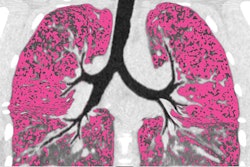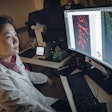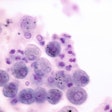
Researchers from Vanderbilt University Medical Center (VUMC) have uncovered new insights on the genetic susceptibilities that make people of African descent disproportionately affected by lung cancer. The study, “Genetic Analysis in African Ancestry Populations Reveals Genetic Contributors to Lung Cancer Susceptibility,” was published in the American Journal of Human Genetics.
Prior research confirmed that African Americans are at greater risk of developing lung cancer than white Americans, despite smoking fewer cigarettes. However, there was limited evidence as to what causes the hereditary difference.
The research group performed genome-wide association analysis on 6,490 people of African ancestry, of which 2,390 had a diagnosis of lung cancer and 4,100 were in a control group for comparison. Its findings revealed a total of 10 genomic regions associated with lung cancer — four of which had never been previously linked to lung cancer (chromosomes 3, 8, 14 and 18).
When the investigators combined these results with large-scale statistics of European and Asian populations, they found 17 genetic regions associated with risk of lung cancer. Specifically, the region on chromosome 15 is well-known as playing a major role in lung cancer risk across all populations. Nine of the identified genetic regions are associated with biological processes relevant to lung function, cell growth and DNA repair.
“This work was uniquely positioned to make use of advances in statistical modeling and genetic ancestry information to ultimately make new insights into the genetic architecture of lung cancer in this at-risk population,” said Jacklyn Hellwege, PhD, in a university news release.
Dr. Hellwege, a research assistant professor of medicine at VUMC, was co-senior author of the study along with Melinda Aldrich, PhD, MPH, professor of medicine, thoracic surgery and biomedical informatics. They believe that this new knowledge can drive future studies and improve treatment options.
“Our work provides a critical advance in lung cancer by improving our limited understanding of genetic susceptibility in African ancestry populations and offers insights that may guide future treatment efforts,” Dr. Aldrich said.























